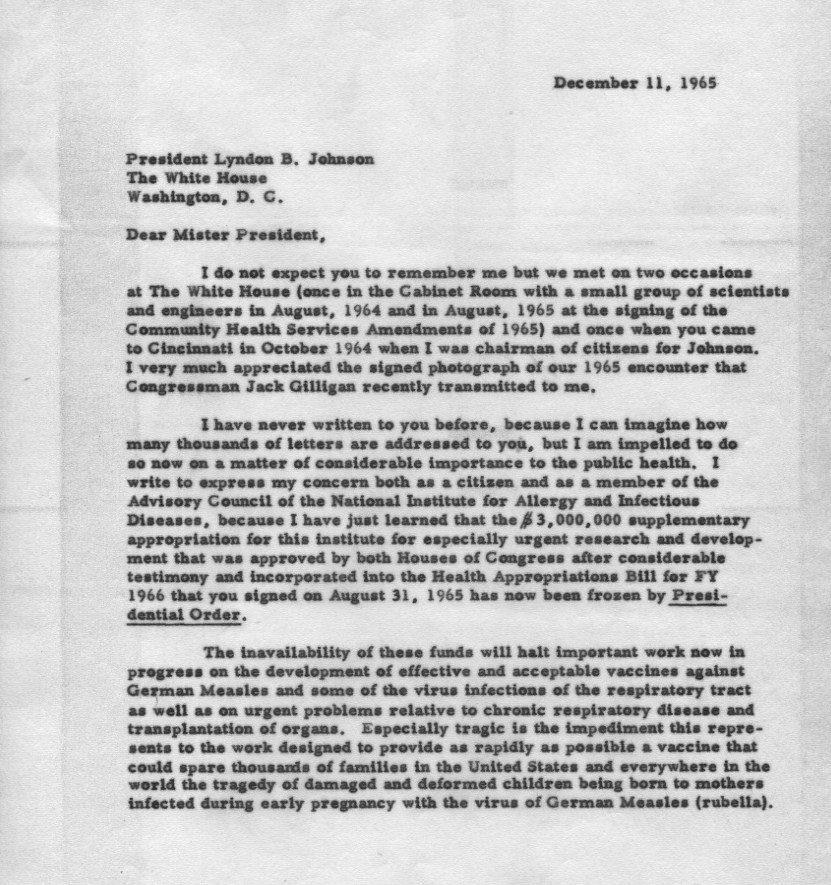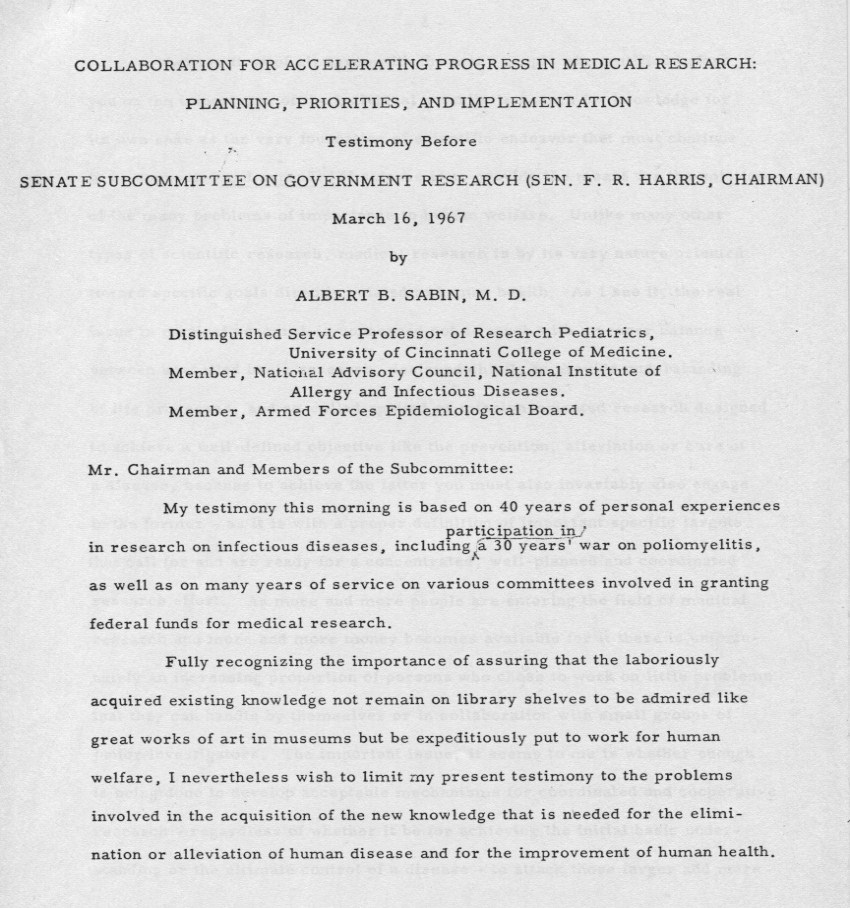One thing I have noticed about Dr. Sabin by reading his correspondence is that he is passionate. Whether it is his stance on the effectiveness of the oral polio vaccine, biomedical research, or humanitarianism, Dr. Sabin was willing to write a letter or speak about his opinion about many different topics. Here are a couple of samples from the collection that I thought were interesting.
Recently, I found a letter Dr. Sabin wrote to President Lyndon Johnson regarding his Presidential Order to freeze federal funding for a Health Appropriations Bill for fiscal year 1966. This bill, as Dr. Sabin argued, was important to the health and well-being of many Americans because it funded many research projects, including the development of the rubella (German measles) vaccine. He wrote, “I hope very much that the subject can be quickly reconsidered and that what has been frozen may be ‘thawed out’ and allowed to flow to the National Institute that will use the funds for programs of very great importance to the welfare of the people of this country and the world.”
I also came across a folder with information about a Senate Subcommittee on Government Research meeting where Dr. Sabin participated on March 16, 1967. Senator Fred R. Harris of Oklahoma, Chairman of the Subcommittee, invited Dr. Sabin to testify on “Research in the Service of Man: Biomedical Development, Evaluation of Existing Federal Institutions.” His testimony emphasized that collaboration was needed to speed up medical research. He said, “My own conclusion is that much more needs to be done than is now being done, and in what follows I examine the question of whose responsibility it is to plan for a more concentrated attack on the more complex disease problems, and to consider new mechanisms for planning, for establishing priorities for funding-because money for research, like money for everything else, must be budgeted-and for implementing the decisions that are reached.” After the meeting, Dr. Sabin sent out copies of his testimony to several of his close colleagues, who suggested that he submit a copy journal Science for possible publication. The adapted version appears in volume 156 of Science on pages 1568-1571, just in case you are interested in reading the full text.
The more I learn about Dr. Sabin, the more I appreciate the honest opinions that he gave his colleagues throughout his letters and speeches. It definitely gives me more insight into his character and paints a better picture of what issues were important to him.
To learn more about the documents I have mentioned, as well as others in our collection, please contact the Winkler Center at chhp@uc.edu or visit the Hauck Center for the Albert B. Sabin Archives website.
In 2010, the University of Cincinnati Libraries received a $314,258 grant from the National Endowment for the Humanities (NEH) to digitize the correspondence and photographs of Dr. Albert B. Sabin. This digitization project has been designated a NEH “We the People” project, an initiative to encourage and strengthen the teaching, study, and understanding of American history and culture through the support of projects that explore significant events and themes in our nation’s history and culture and that advance knowledge of the principles that define America. Any views, findings, conclusions, or recommendations expressed in this blog do not necessarily reflect those of the National Endowment for the Humanities.


